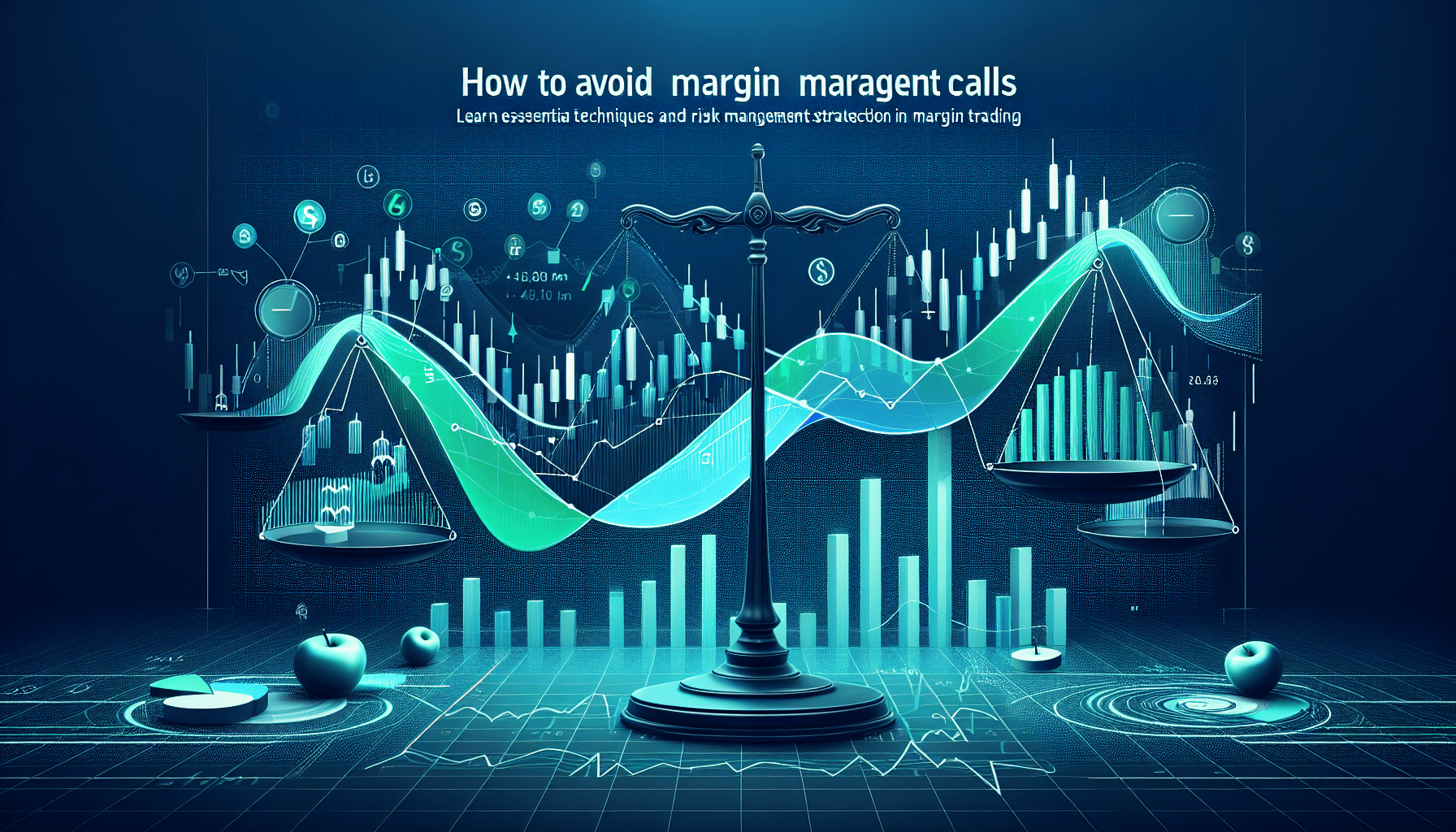How to Avoid Margin Calls: Proven Prop Trading Strategies
In today’s dynamic trading environment, avoiding margin calls is not just important—it’s critical for ensuring longevity and success in prop trading. Margin calls can disrupt strategies and drain capital if not managed correctly. In this blog post, we will unveil actionable steps, expert insights, and proven strategies to prevent margin calls. Whether you are a seasoned prop trader or just starting out, these guidelines will help you maintain a healthier trading balance and protect your portfolio from sudden market shifts.
Understanding Margin Calls in Prop Trading
Before diving into strategies, it is essential to understand what margin calls are and why they occur. A margin call happens when a trading account’s equity falls below the required maintenance margin level. For prop traders utilizing leverage, this can trigger forced liquidations or additional funding demands. In prop trading, where trading capital is shared and risk is managed collectively, maintaining sufficient margin is critical to protecting your investments and the firm’s overall stability.
What Causes Margin Calls?
Margin calls can be caused by several factors, including volatile market conditions, excessive leverage, unexpected news events, or insufficient risk management. Recognizing these triggers allows you to proactively manage your positions and minimize the risk of suffering from a margin call.
Effective Strategies to Avoid Margin Calls
Prop traders can avoid margin calls by adopting a mixture of risk management techniques and smart trading strategies. Below we outline some proven methods:
1. Diversify Your Positions
Diversification remains one of the most effective techniques to mitigate risk. To prevent concentrated exposure and potential losses that might lead to margin calls, ensure that your trading positions are spread across different asset classes and instruments.
2. Leverage Managed Trading Platforms
Using industry-leading automated backtesting and trading platforms can help monitor and adjust your trading strategies. Tools like TradingView and MetaTrader 5 offer robust charting, technical analysis, and real-time risk assessment features that allow traders to optimize margin levels and preemptively avert margin calls. For example:
- TradingView: Known for its intuitive interface and comprehensive technical analysis tools, TradingView is excellent for visualizing market trends and testing trading ideas.
- MetaTrader 5: Provides fast execution and detailed analytical tools which help traders set strict stop losses and automatically adjust leverage to safeguard against margin depletion.
3. Adopt a Sound Risk Management Strategy
Establishing strict risk management protocols is fundamental. Always determine your maximum acceptable drawdown and use stop-loss orders to protect against large losses. Calculate your position sizes carefully, ensuring that even if the market moves against you, your overall capital is preserved. A well-defined risk management strategy reduces the likelihood of abrupt margin calls.
4. Monitor and Adjust Leverage
Excessive leverage is one of the prime culprits behind margin calls. Keep leverage at manageable levels and adjust it in response to market volatility. Avoid overextending your positions, particularly during uncertain market conditions.
5. Regularly Review Your Trading Plan
A strategic review of your trading approach is paramount. Continually refine your strategy based on performance feedback and current market assessments. This includes rebalancing your portfolio and adapting to new market regulations and emerging trends in prop trading.
Prop Trading Tools for Risk Management and Margin Call Prevention
Implementing the right tools in your trading arsenal is critical. In addition to TradingView and MetaTrader 5, here are some other platforms that can enhance your margin call prevention:
NinjaTrader
NinjaTrader provides advanced charting and automated strategy features, making it ideal for day traders seeking tight risk controls and execution speed. Its customizable interface allows prop traders to fine-tune risk parameters and leverage settings, ensuring your trading strategy remains robust against market volatility.
Amibroker
Amibroker is a favored platform for quantitative analysis and backtesting. Prop traders can use Amibroker to simulate market scenarios and stress-test their strategies under different conditions to preempt margin calls. Its fast processing and flexible scripting language allow for precise adjustments tailored to individual risk profiles.
QuantConnect
QuantConnect is a cloud-based algorithmic trading platform that provides access to historical and real-time data. With QuantConnect, prop traders can develop sophisticated trading algorithms with integrated risk management modules that automatically adjust positions to prevent triggering margin calls.
Practical Tips for Day-to-Day Margin Call Prevention
Beyond using the right tools and strategies, there are practical daily habits that prop traders should adopt:
- Regularly calculate your margin level and monitor it throughout trading hours.
- Set up alerts for when your account equity approaches the margin threshold.
- Keep a trading journal documenting your decisions, adjustments, and outcomes to improve future planning and risk assessment.
- Maintain a healthy cash reserve as a buffer for unexpected market turns.
Actionable Workflow Example
Below is a visual table summarizing a workflow for managing margin call risk in prop trading:
| Step | Action | Tool/Platform | Outcome |
|---|---|---|---|
| 1 | Set risk parameters and stop-loss orders | MetaTrader 5, NinjaTrader | Limits potential losses |
| 2 | Monitor below-threshold alerts | TradingView, Trade Ideas | Early warning of margin drop |
| 3 | Consistently rebalance portfolio | Amibroker, QuantConnect | Maintains diversified exposure |
| 4 | Review and adjust leverage | NinjaTrader, MetaTrader 5 | Prevents over-leverage |
Advanced Margin Call Management Techniques
For those deeply involved in prop trading, advanced techniques may offer further protection. Consider implementing the following:
Dynamic Risk Allocation
This approach involves adjusting risk on a real-time basis. As market conditions fluctuate, redistribute capital to lower exposure in volatile sectors. Tools such as Interactive Brokers and Sierra Chart offer sophisticated risk analytics that can constantly recalibrate your risk settings.
Algorithmic Trading Adjustments
Algorithmic trading systems can be programmed to detect early warning signs of a potential margin call. Platforms like Backtrader and Quant Tower allow you to integrate custom code that triggers automatic portfolio adjustments, thereby minimizing the risk of triggering margin calls during market turbulence.
Integrating Internal Resources
For further reading and deeper insights, explore our other articles on risk management and prop trading strategies. Check out Advanced Risk Management in Prop Trading for detailed risk frameworks, and visit Our Comprehensive Guide to Prop Trading Tools to learn about software that supports your trading strategy.
Conclusion and Call to Action
In the high-stakes arena of prop trading, knowing how to avoid margin calls can be the difference between sustainable trading success and catastrophic losses. By diversifying your portfolio, leveraging advanced trading platforms, adopting stringent risk management protocols, and utilizing algorithmic adjustments, you can protect your investments and maintain control even during market volatility. Remember, consistent monitoring and continuous strategy refinement are the cornerstones of effective margin call prevention.
If you’re ready to take your prop trading strategy to the next level, download our free Margin Call Prevention Checklist or sign up for our upcoming webinar where we deep dive into risk management fundamentals for prop trading. Act now to ensure you’re trading smartly and securely!







